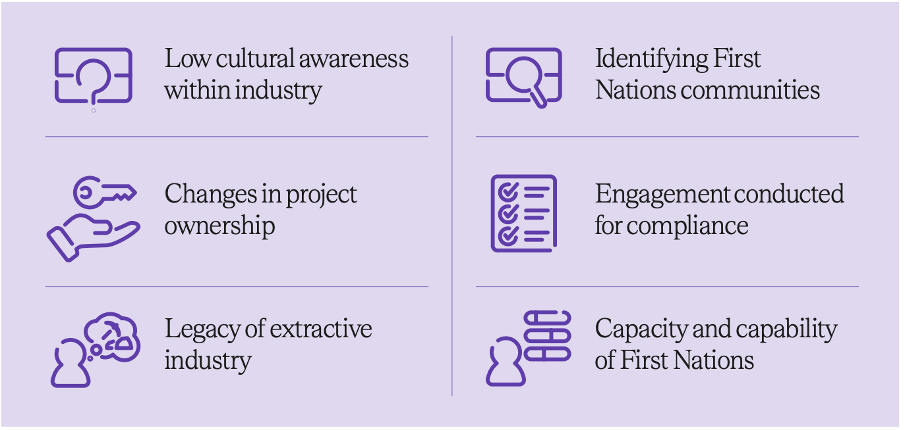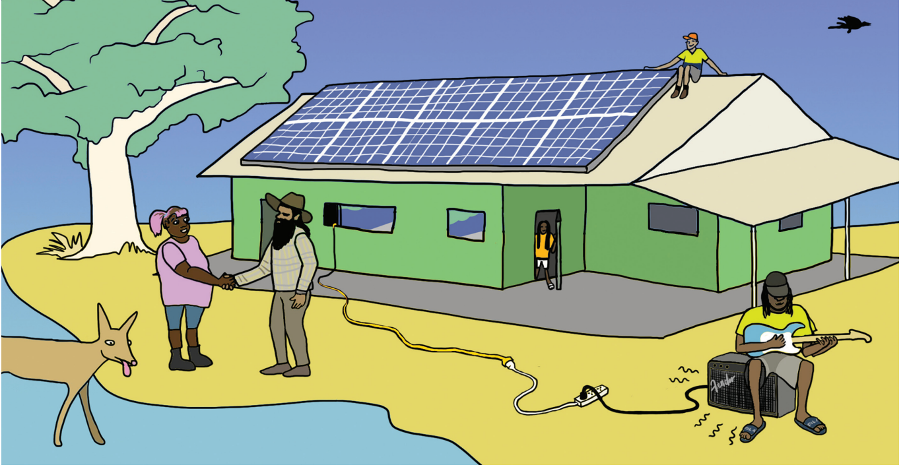Australia’s push towards a renewable future has recognised the importance of listening to First Nations communities. The joint endeavour between the Clean Energy Council, KPMG and the First Nations Clean Energy Network has seen the development of the Leading Practice Principles: First Nations Renewable Energy Projects guide. The guide offers a roadmap for integrating Indigenous wisdom and rights into the renewable energy boom.
This new guide sets out expectations for government, business and industry and details key considerations for engagement at each stage of a project’s life cycle. The guide is formed around incorporating the ten principles outlined by the First Nations Clean Energy Network for clean energy projects.
These ten principles highlight the importance of early and ongoing dialogue, cultural sensitivity, environmental stewardship, and equitable benefit sharing.
The implementation of the guide is a call to action for the industry to go beyond compliance, and to seek out and listen to the voices of First Nations peoples and embed these principles into every phase of project development.
By incorporating these principles into their operations and decision-making processes, proponents of renewable energy projects can demonstrate they are respecting the rights of First Nations peoples and improving outcomes for First Nations rights holders and communities.
The guide outlines First Nations expectations for the renewables sector and details the key considerations for their engagement at each stage of the project lifecycle. In doing so, this Guide aims to unify industry and First Nations communities with early and ongoing engagement throughout the life of a project.
Clean Energy Council Chief Executive Kane Thornton said the intention of the guide is to ensure respect for the rights of Indigenous people and improve outcomes for communities.
“With proper practices in place, the essential work of the energy transition will not only accelerate Australia towards achieving its targets but provide First Nations Australians with an opportunity to be heard and play a crucial role in a defining economic shift for the country.”
Research conducted when developing the guide identified as key current challenges and barriers to effective engagement. They were outlined in the document and set out in the table below.

The opportunity
Despite these challenges, there is also a significant opportunity to build long-term relationships that provide opportunities for First Nations communities.
Active participation in development through energy partnerships and equity will lead to increased employment, maximised community support and new business and economic development from renewables.
KPMG Indigenous Services Lead, Glen Brennan, believes the path to sustainability must be inclusive and acknowledges the deep connections First Nations peoples have with the land, environment, and culture.
“First Nations communities have practised sustainable land cultivation and management for generations, they have cultivated the land in ways that promote biodiversity, soil health, and overall ecosystem resilience” Brennan said.
First Nations Clean Energy Network co-chair, Karrina Nolan said First Nations are central to the Australian Government’s plan for the renewables roll out. “The guide proposes a framework built on respect, engagement, and shared benefits, not just about changing how Australia powers its future but also about healing past wounds and forging new, respectful partnerships,” said Nolan.
The clean energy council states that respectful engagement with Traditional Owners is not just a moral imperative but a strategic one. “When projects are developed in partnership with First Nations communities, they are built on stronger, more resilient foundations.”
Capturing Australia’s potential for solar energy comes with a responsibility to ensure the transition to clean energy is fair and inclusive. The guide ensures new development moves ahead with this cautious optimism.
This content is protected by copyright and may not be reused. If you want to cooperate with us and would like to reuse some of our content, please contact: editors@pv-magazine.com.









1 comment
By submitting this form you agree to pv magazine using your data for the purposes of publishing your comment.
Your personal data will only be disclosed or otherwise transmitted to third parties for the purposes of spam filtering or if this is necessary for technical maintenance of the website. Any other transfer to third parties will not take place unless this is justified on the basis of applicable data protection regulations or if pv magazine is legally obliged to do so.
You may revoke this consent at any time with effect for the future, in which case your personal data will be deleted immediately. Otherwise, your data will be deleted if pv magazine has processed your request or the purpose of data storage is fulfilled.
Further information on data privacy can be found in our Data Protection Policy.